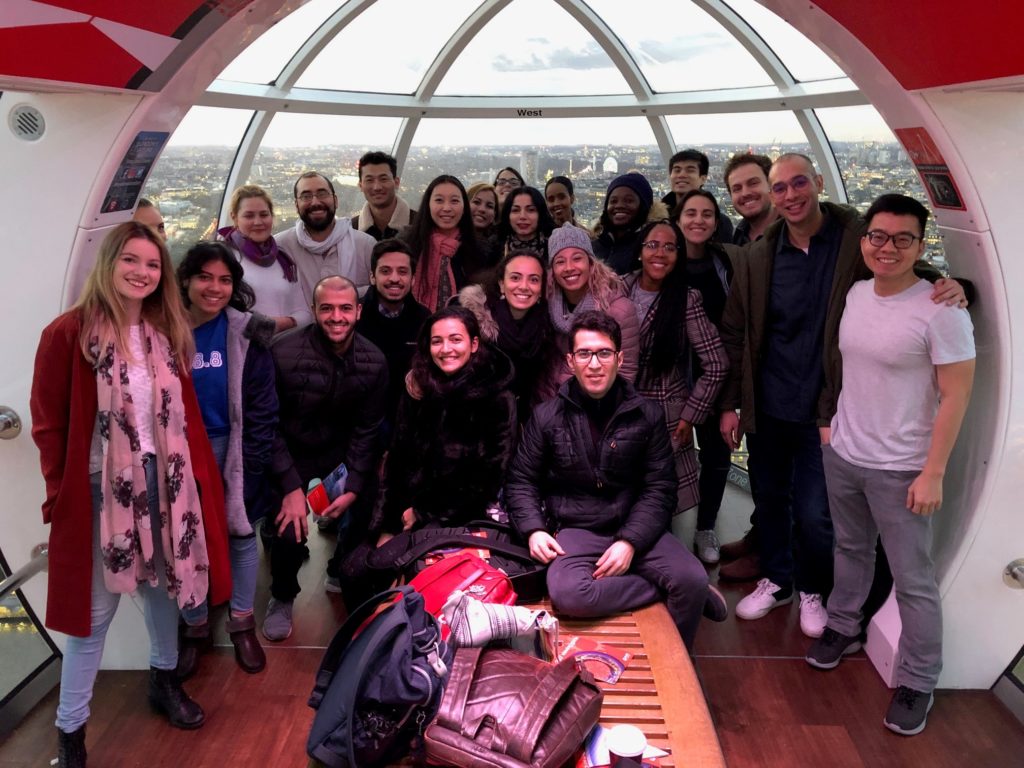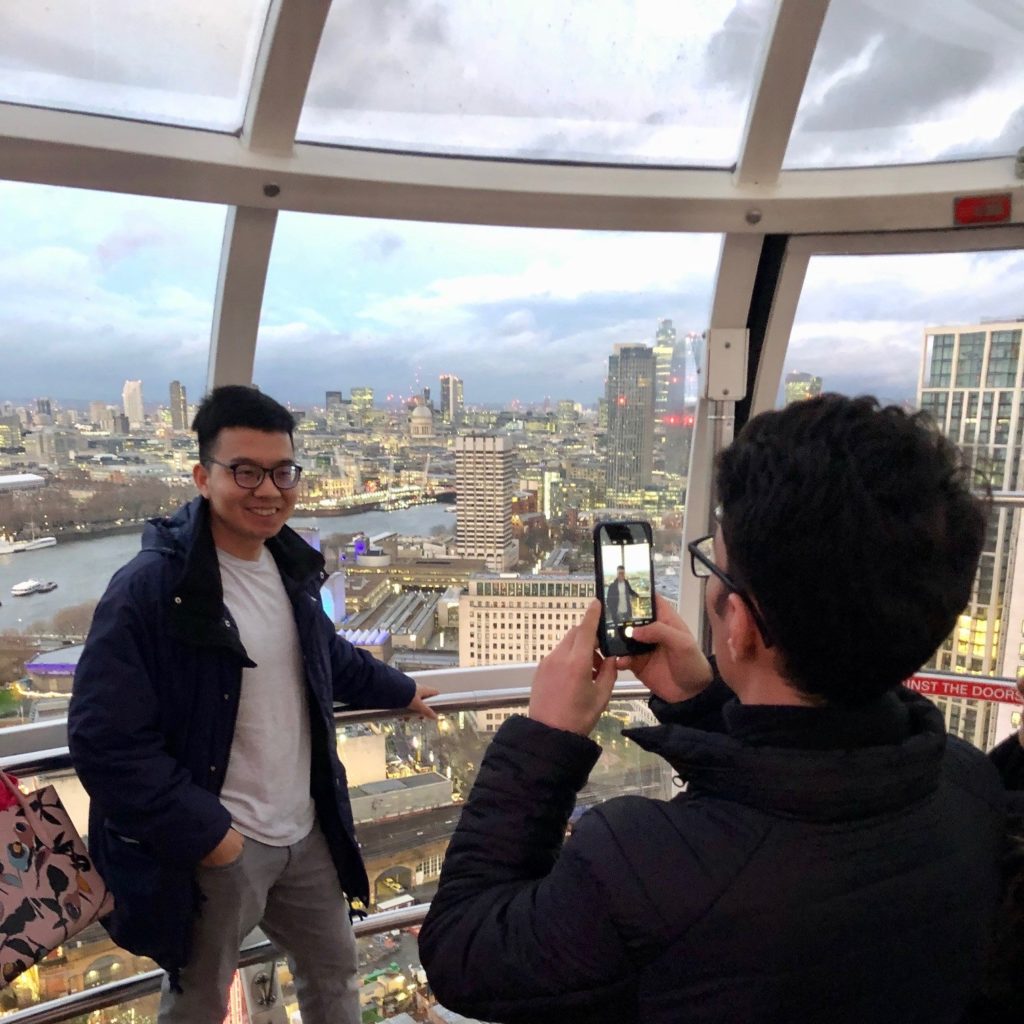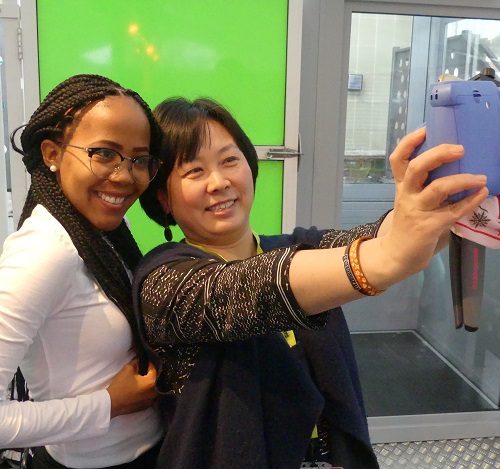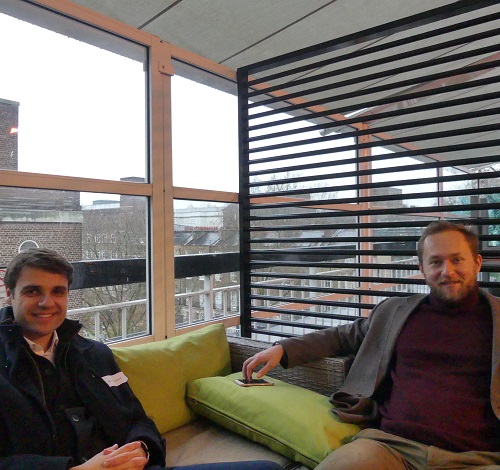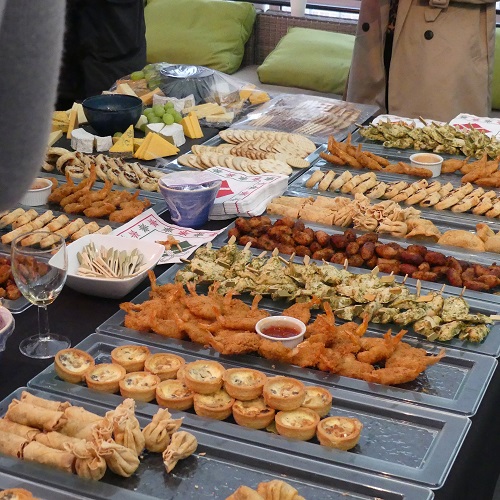This post was contributed by Birkbeck alumnus Dr Ben Winyard, who is one of the organisers of Dickens Day. Join Birkbeck’s Centre for Nineteenth-Century Studies as we read Our Mutual Friend month-by-month in its original instalments.

Charles Dickens
Now in its twenty-eighth year, Dickens Day enjoys a uniquely mixed audience of Dickens enthusiasts, academics, and students at all levels of study. It is perhaps apt then, that this year’s theme was ‘Dickens and Conviviality’, as this one-day conference, jointly run by Birkbeck, the University of Leicester and the Dickens Fellowship, brought together over one hundred Dickens aficionados for a day of genial intellectual exchange.
Dickens was associated with good humour, bonhomie and sociability from the outset of his career. Before his first novel, The Pickwick Papers, had even concluded its run of monthly instalments (1836–1837), its twenty-four-year-old author had been catapulted to fame and was widely lionised, and even mythologised, as the proponent and exemplar of merry-making. Indeed, Pickwick is famously stuffed with eating, drinking and parties, dances, celebrations, picnics and all manner of sociable endeavours. Like many of his contemporaries, Dickens held that laughter possesses a unique ability to harmonise and heal. One of our speakers, Clive Johnson, observed that if Freud understood humour in economic terms as a ‘wasteful’ element in the psychic economy, for Dickens, writing in an era sharply defined by an imaginatively parsimonious political economy, this was actually a great positive.
Dickens went on to consolidate this image of himself as a master of conviviality in his own life: he was notorious for his love of parties, impromptu dinners, jamborees, skits, celebrations, practical jokes, amateur theatrics, and many other forms of high-spirited sociability. He also assiduously cultivated many friendships with some of the leading authors, politicians, artists, thinkers, philanthropists and actors of his age, and he was a notably prolific letter writer in an era famous for its voluminous epistolary correspondence.
It is as the exemplar of Christmas spirit that Dickens is perhaps most firmly lodged in the popular cultural imagination; he is even erroneously praised for ‘inventing’ Christmas in its modern, recognisable form. Even in Sketches by Boz (1836), his first published collection, Christmas is warmly lauded for stoking mutual affection:
‘Christmas time! The man must be a misanthrope indeed, in whose breast something like a jovial feeling is not roused – in whose mind some pleasant associations are not awakened – by the recurrence of Christmas. […] Who can be insensible to the outpourings of good feeling, and the honest interchange of affectionate attachment, which abound at this season of the year? […] There seems a magic in the very name of Christmas. Petty jealousies and discords are forgotten: social feelings are awakened in bosoms to which they have long been strangers’.
The later image of the joyous Cratchits in A Christmas Carol (1843) remains one of Dickens’s most famous depictions of good feeling, emblazoned on our collective memory from multiple versions of this perennial classic.
However, Dickens was also deeply interested in the flipside of conviviality and it is interesting that another paradigmatic Dickensian vignette is the starving, bedraggled Oliver Twist holding up his empty bowl and asking for more. One of the day’s plenary speakers, Wendy Parkins, reminded us of the ethical injunction to care for the vulnerable, especially children, that Dickens evokes, citing the neglected Jellyby children in Bleak House (1852–53). For Dickens, hospitality, like philanthropy, is a duty of care that we all owe to those in need. Asking for more, like Oliver, is also a rebellious assertion of individual need in a system that conglomerates and marginalises the poor. One of the fascinating threads of the day was the constant slippage in Dickens between needs, desires and wants, and the interconnectedness of physical need with emotional, social and sexual needs and desires. In Dickens, ‘hunger’ operates metaphorically as well as literally. Indeed, Jo Parsons reminded us of Dickens’s own childhood experiences of physical and emotional hunger that echo through his work, in particular David Copperfield (1849–50), and which perhaps explain his wish, shortly before his death, to compose a cookery book.
Indeed, despite his reputation as a sort of literary Father Christmas, Dickens also depicted disastrous and terrifying Christmas scenes: most famously, Pip’s excruciatingly anxious Christmas dinner in Great Expectations (1860–1861), as he endures the moralising insults of the adults and awaits the discovery of his theft of food for the escaped convict Magwitch. Dickens’s final, unfinished novel, The Mystery of Edwin Drood (1870), reaches a climactic point with the disappearance of the eponymous hero on a particularly fevered and gloomy Christmas Day. Despite this, Pete Orford, creator of the Drood Inquiry revealed how early reviews of Drood foregrounded the novel’s humour and compared it to The Pickwick Papers, despite its gothic themes of drug addiction, madness and murder. As Orford showed, Dickens was a master of alternating light and dark, moving swiftly between humour and more ominous, tragic tones.
Most of our speakers were reluctant to take Dickens’s representations of good-humoured sociability at face-value, with most papers focusing conversely on loneliness, isolation, poverty and want, social aping and pretension, and the feelings of inadequacy, anxiety and exclusion that may actually fuel conviviality. As Nicola Bradbury observed, Pip’s Christmas dinner is made entirely miserable by the appalling company – in Dickens, hell really is other people. Charlotte Boyce considered the hidden class dynamics of Pickwickian sociability; somebody low-paid and low-status prepares, serves and clears up all those extravagant, jolly meals. Harriet Briggs considered how Dickensian laughter may be hearty and boisterous but is rarely anarchic, often operating to dissolve discontent and smother rebellious impulses. As the day’s keynote speaker, Malcolm Andrews, observed, humour in Dickens is both social glue and a social corrective.
Dickens Day is famous for its readings and this year’s – David Copperfield’s hilariously drunken disaster of a dinner party and the sham society wedding of the Lammles in Our Mutual Friend (1864–65) – further confirmed that Dickensian conviviality is often at its most hilarious when it is faked, strained, overegged – or otherwise goes horribly wrong. Fortunately, no such disasters befell this year’s event, which is already looking forward to celebrating its thirtieth anniversary in 2016.
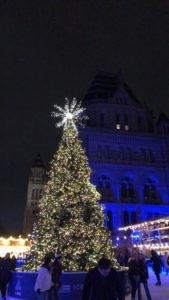 In the lead-up to the end of the semester, Birkbeck on Ice was the perfect way to enjoy a firm favourite – the Natural History Museum’s ice skating.
In the lead-up to the end of the semester, Birkbeck on Ice was the perfect way to enjoy a firm favourite – the Natural History Museum’s ice skating.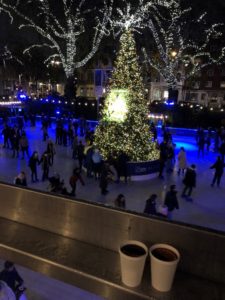 Just in time for our session to end, the rain came down, so we all retreated into the loft bar for some mulled wine or hot chocolates, and to get to know the new friends made out on the ice, or catch up with how classmates were going with revision and assessments. A very pleasant way to defrost our fingers!
Just in time for our session to end, the rain came down, so we all retreated into the loft bar for some mulled wine or hot chocolates, and to get to know the new friends made out on the ice, or catch up with how classmates were going with revision and assessments. A very pleasant way to defrost our fingers!